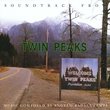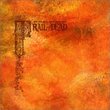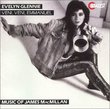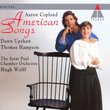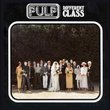| All Artists: Pierre-Laurent Aimard, Susan Graham, Charles Ives Title: Ives: Concord Sonata; Songs Members Wishing: 1 Total Copies: 0 Label: Warner Classics Release Date: 5/11/2004 Genres: Pop, Classical Styles: Vocal Pop, Forms & Genres, Sonatas, Historical Periods, Classical (c.1770-1830), Modern, 20th, & 21st Century Number of Discs: 1 SwapaCD Credits: 1 UPC: 825646029723 |
Search - Pierre-Laurent Aimard, Susan Graham, Charles Ives :: Ives: Concord Sonata; Songs
 | Pierre-Laurent Aimard, Susan Graham, Charles Ives Ives: Concord Sonata; Songs Genres: Pop, Classical
Ives' Second Sonata is one of the toughest, but it holds no fears for Aimard, a noted interpreter of Messiaen, Ligetti, and other moderns who require virtuoso technique and idiomatic expertise. Each of its four movements ... more » |
CD DetailsSynopsis
Amazon.com Ives' Second Sonata is one of the toughest, but it holds no fears for Aimard, a noted interpreter of Messiaen, Ligetti, and other moderns who require virtuoso technique and idiomatic expertise. Each of its four movements is titled for New England luminaries: Emerson, Hawthorne, the Alcotts, and Thoreau. The longest, "Emerson," is knotty and energetic, bristling with a minefield of cluster chords. "Hawthorne" is a genial scherzo exhibiting a wider palette, while "The Alcotts" is a lyrical paean to domestic tranquility. "Thoreau" embraces the mysteries of nature, played with intensity by Aimard. There's an abundance of power in his playing, but also ravishing effects like the startling diminuendo in "Thoreau" and the array of marches, hymns, and parlor songs Ives threw into the mix. His terrific "Concord" Sonata is matched by the survey of Ives' inventive songs, 17 of them superbly sung by Susan Graham with Aimard superb as her piano partner. Graham captures every nuance of a mind-boggling variety of idioms, from nostalgia, tenderness, and hilarious miniatures like "Ann Street" and the sendup of opera in "Memories ? A," among many other highlights. This one's a must for Ivesians, fans of musical eccentricity, modern music enthusiasts, and anyone in search of musical surprises, which abound on almost every track. --Dan Davis Similarly Requested CDs
|
CD ReviewsIt takes a Frenchman to capture an American masterpiece! Jeff Abell | Chicago, IL USA | 05/18/2004 (5 out of 5 stars) "The "Concord Sonata" of Charles Ives has been described as "the greatest work written by an American." It's a big sprawling, glorious mess of a thing, inspired by the Transcendental writers Emerson, Hawthorne, Alcott and Thoreau. I first heard the ground-breaking version by John Kirkpatrick, and have long cherished the powerful account by Gilbert Kalish (recorded in the '70s). But hearing Pierre-Laurent Aimard play this piece makes me forget all about those earlier recordings. A specialist in Messian and Ligeti, Aimard plays Ives like one to the manner born. Forget any preconceived notions of what it means to be a "French pianist," and let this astonishing performance carry you away. The Alcotts movement has never felt so tender, and the Thoreau movement is likewise exquisitely balanced. Perhaps most enthralling is how he manages to give shape and sense to Emerson, and Hawthorne, the fiendishly hard scherzo, has never had a reading like this. I'd have been content with the sonata, but the disk also holds the gorgeous mezzo Susan Graham singing 17 Ives songs, with Aimard's brilliant accompaniments. A fabulous recording no serious American music collection should be without!" A fresh take on sonata no. 2 J. Shapiro | Holland, OH United States | 07/28/2004 (4 out of 5 stars) "I have a slightly different view than with the previous review, as well as the Davis review. If you are a fan of Ives (you probably are if you are interested in this cd), then you may not need to bother with half of this cd. Messo Susan Graham is quite out of touch with the character studies of these wonderful songs. When she isn't yodelling many times louder than she ought to on some high notes to demonstrate her vocal command, she becomes the epitomy of boredom and banality. I imagine Ben Stein could give a more lifelike reading of 'The Circus Band'. The jovial cheer "hear the trombones!" sounds more akin to a yawn on this version. Since when did shear vocal power and sonic richness take such high precedence over interpretive skills? Have you really forgotten Jan de Gaetani's wonderous versions? I feel Graham has done a disservice to this music, and should probably go back to singing French arias which apparently she is quite good at. The Concord Sonata is definetly the reason you may want to own this disc. Aimard is outstanding as per usual. Emerson does really come alive here, as does Hawthorne with it's dramtic tempo shifts. My main concern lies in the 3rd movement 'the Alcotts'. It is clearly a pastorale movement with a touch of sweet nostalgia. Aimard plays a little too deliberately here- not loose enough with the tempo or lively enough with the rhythms. That really is the only disadvantage. I don't think Aimard played the folk elements strongly enough. I guess the main question is: if I own the Kalish recording of the Sonata, do I need this one too? Probably again, you are an Ives believer and this version has great insights- why not. Like the Kalish version, this one includes the optional viola line on Emerson and the flute part of Thoreau. They appear better realised with more dramatic impact on the Kalish recording- a minor point. Movement for movement Aimard has the first and seccond, but I prefer 3 and 4 on the Kalish. The 3rd mentioned above, and the fourth seems to have more gravity with Kalish, bringing more of a closure to the tempestuous nature of the work. Aimard shows a more whispy, impressionistic take as he also does at the start of Hawthorne, reminding of Debussy. Not inappropriate stylistically speaking, but definetly a matter of taste. Aimard is a winner and I love what he does for Ligeti and Messiaen. Overall a very successful Ives sonata, and a questionably performed set of songs, well-chosen as they might be. If you are new to Ives this should be enough to get you into further explorations." Great Performances, but the Star of this CD is Charles Ives Grady Harp | Los Angeles, CA United States | 08/09/2005 (5 out of 5 stars) "The uniquely atypical music of Charles Ives continues to mature and embed itself in the minds of larger and larger audiences every year. Practically every major orchestra in this country (and in Europe) now includes at least his symphonies in the standard repertoire. His music is probably as 'American' as any composed, so conjoined with literature and history and folksongs and all manner of Americana. This superb recording takes us one step further in appreciating Ives' gifts: his breathtaking Concord Sonata is coupled with one of the finest selections of his many songs and both sonata and songs are performed with consummate skill by pianist Pierre-Laurent Aimard and mezzo soprano Susan Graham.
Aimard's approach to this big piano work is one of direct approach to the complexities of line and mood and in that approach he doesn't allow his own personality to blur Ives' message. Aimard can tackle the impossibly difficult passages and keep them transparent: he can also find the inner quiet beauty as well as any other pianist. The result is a Concord Sonata of majesty and honest simplicity. Susan Graham has long included Ives' songs in her recitals and that experience shows in her approach to this varied selection. Graham is an immensely intelligent musician, one who can find the meaning of even a brief song in an instant. She is in fine vocal form here, and her collaboration with Aimard completes a presentation that will be difficult to match. This is a fine recording and an excellent entry point for music lovers who may have been wary of Ives' challenges. Relax and enjoy this recital. Grady Harp, August 05" |

 Track Listings (21) - Disc #1
Track Listings (21) - Disc #1
